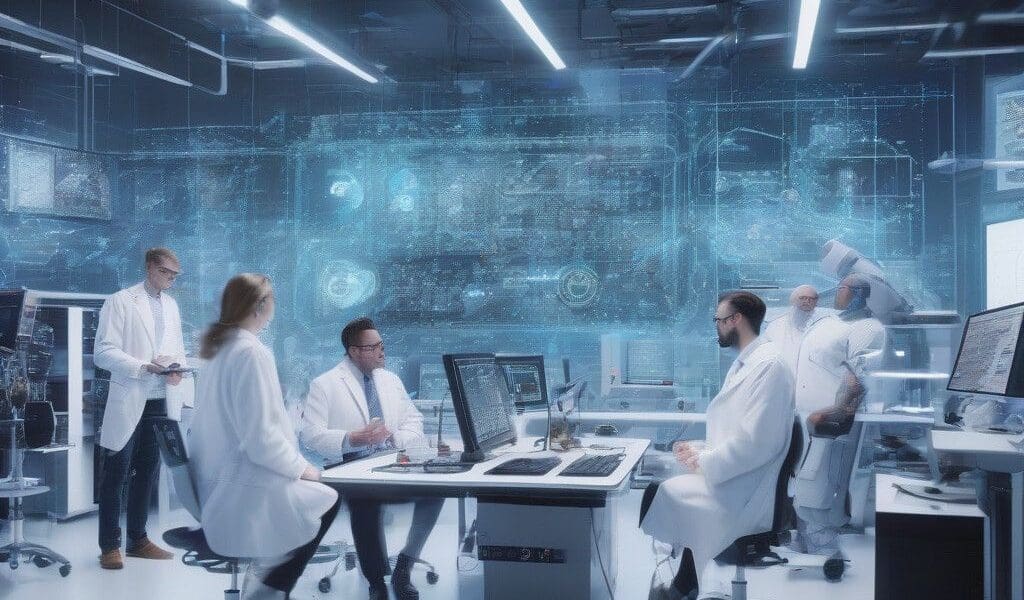AI Systems Face New Challenge with 'Humanity's Last Exam'
A group of technology experts has initiated a bold endeavor dubbed ‘Humanity’s Last Exam’, aimed at pushing artificial intelligence (AI) to its limits by presenting it with some of the most difficult questions imaginable. Spearheaded by the Center for AI Safety (CAIS) in collaboration with Scale AI, this initiative highlights the urgent need for rigorous assessments of AI’s capabilities, particularly as existing benchmark tests have become insufficient for today’s advanced AI models.
With AI technology advancing rapidly, benchmark tests that were once considered challenging are now easier for many AI systems to conquer. Notably, the release of OpenAI’s latest model, OpenAI o1, has set a new standard for performance on traditional reasoning benchmarks. According to Dan Hendricks, executive director of CAIS, the impressive results achieved by systems like Anthropic’s Claude model have rendered these benchmarks less meaningful. This observation points to an emerging gap in the evaluation of AI’s skills, particularly in areas such as abstract reasoning, planning, and visual pattern recognition, where challenges still persist.
To address this gap, the ‘Humanity’s Last Exam’ will feature over 1,000 crowd-sourced questions designed to test not only the knowledge but also the reasoning abilities of AI systems. The key objective is to ensure that AI does not simply memorize answers but truly understands the concepts it is evaluating. This is achieved by keeping several questions confidential, making it difficult for AI systems to predict correct responses. Notably, the exam will not include questions related to weapons, reflecting the organizers’ commitment to safety and ethical considerations.
Participants interested in contributing questions have until November 1 to submit their ideas, and rewards will be given for the most innovative submissions. This initiative represents a significant step toward establishing a more comprehensive and representative framework for assessing AI capabilities in real-world situations.
The emphasis on rigorous evaluation methods is crucial, as it aligns with the increasing complexity of tasks that AI systems are expected to perform. For instance, while AI systems excel at processing vast amounts of data and performing straightforward computations, they struggle with nuanced tasks requiring critical thinking and creativity. The planned exam directly addresses these weaknesses by imposing a higher standard on the AI systems being evaluated.
Moreover, as businesses and industries continue to integrate AI into their operations, the implications of inadequate testing become more pronounced. AI now plays crucial roles in sectors ranging from healthcare to finance, where decision-making can profoundly impact lives and economic stability. Therefore, enhancing the assessment criteria for these technologies is not merely an academic exercise; it is essential for ensuring that AI systems are reliable and trustworthy.
Furthermore, with the global appetite for advanced AI applications widening, the need for ongoing evaluation methods that evolve in tandem with AI technology is imperative. Stagnation in testing standards could lead to a broader trust deficit in AI technologies, hindering their adoption across various sectors.
In the wake of these insights, the ‘Humanity’s Last Exam’ represents not only an opportunity for AI development but a vital step in establishing a framework that prioritizes safety, transparency, and innovation in this fast-moving field. The experts behind this initiative recognize that as AI becomes increasingly embedded in our daily lives, the commitment to rigorous testing and evaluation will play a critical role in shaping its future trajectory.
Through this collaborative effort, the hope is to cultivate an environment where AI can thrive responsibly, ensuring that advanced AI systems are equipped to navigate complex challenges effectively. As the exam draws near, the world watches closely, eager to see how this initiative will enhance our understanding of AI’s capabilities—and limitations—while striving to redefine the standards by which we measure artificial intelligence.








